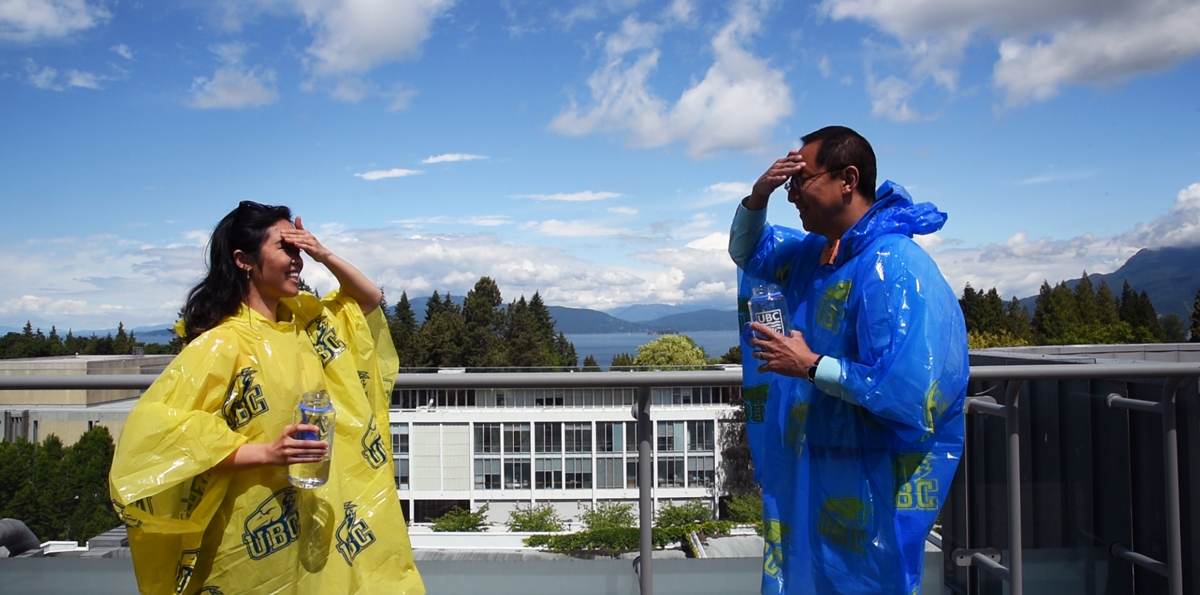Five UBC students have launched a campaign to raise awareness about nuclear weapons and the Comprehensive Nuclear-Test-Ban Treaty (CTBT), a treaty which would ban all nuclear explosions and testing anywhere in the world.
The students, Veronika Ruskova, Veronica Tjokro, Juan Bustamante, Bronwyn McCarter and Morgan Slessor, will also be attending the CTBT Science and Technology Conference in Vienna June 26-30. The conference, held every other year, brings together scientists from around the world to discuss advances in test-ban monitoring and verification and to ensure that the CTBT’s verification regime remains up to date with scientific and technical innovation.
The students became interested in this issue while taking a course at UBC, Living with Nuclear Weapons? Arms Control and Verification Technologies. The course, taught by Allen Sens, professor of teaching in Political Science, and Matt Yedlin, associate professor of Electrical Engineering, brings together students from the Faculties of Arts and Applied Sciences to explore the scientific principles and global politics behind nuclear weapons, arms control and verification technologies.
“The prompt that was given to us was how can we engage youth about this and how can we basically inform them of the dangers of nuclear weapons and nuclear testing,” Slessor said.
The students created a game inspired by the ALS Ice Bucket Challenge. Two people each hold a glass of water. They cover their eyes and count down from 10, and in that space of time either choose to throw the water on the other person or not. Throwing the water represents the possibility of testing a nuclear weapon.
The students asked UBC president Santa Ono to participate in the challenge, which launched on June 20. Upon completing the game, Ono asked the presidents of Simon Fraser University, the University of Toronto and McGill University to take up the challenge to spread the message about the CTBT.
“I’m doing this to increase attention to the CTBT Challenge to increase awareness of the threats of thermonuclear war, and I challenge the presidents of SFU, Andrew Petter; the University of Toronto, Meric Gertler; and McGill University, Suzanne Fortier, to do the same within 48 hours,” Ono said.
Yedlin has been involved with the Preparatory Commission for the Comprehensive Nuclear-Test-Ban Treaty Organization, the body that promotes ratification of the CTBT and has established a global verification regime to detect nuclear tests, since 2011. He originally came up with the concept of the course after attending a CTBTO conference in 2012 called “Engaging the Experts, Training the Trainers: CTBT Education in the 21st Century,” centered around education and outreach about issues surrounding the CTBT.
“The only way one can overcome political blocks is to have the mass population involved,” Yedlin said when talking about why he wanted to start teaching university students about the history and science of nuclear weapons.
The course originally received funding through flexible learning at UBC, which has provided opportunities for instructors to implement new pedagogical methods and innovative technologies in their courses. Yedlin and Sens plan to begin the development of a MOOC or massive open online course in the fall to bring their course to a wider international audience.
